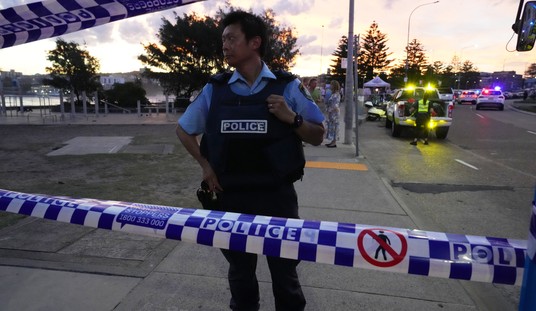The current wave of insurgent attacks across Iraq is motivated by two immediate goals: take credit for the withdrawal of U.S. forces as a defeat for America and intimidate the Iraqi government from extending the withdrawal deadline beyond the end of the year.
And the Muslim holy month of Ramadan is also a time when insurgents often prefer to strike hard to link their struggle to Islam. But the key question now is whether the Iraqi insurgency has returned to the higher level of conflict seen before the U.S. military surge. Unfortunately, some trends appear to point toward the answer being “yes.” The Iraqi security forces’ poor training, morale, and performance remain endemic problems. Recall, for example, that when the Sunni insurgent group “Islamic State of Iraq” launched a major assault in March on the government compound of Salah al-Din’s provincial administration in Tikrit, it took a joint U.S.-Iraqi team to reclaim the provincial government building. Even so, the attack left over 60 dead and more than 100 injured.
Despite the decline of violence since the virtual civil war in 2006, the Iraqi army and police are still not fully capable of taking on counterinsurgency operations by themselves. This issue — rather than concern over potential foreign threats — is behind the desire by some Iraqi politicians, like Prime Minister Nouri al-Maliki, to extend the withdrawal deadline.
A related concern is the way in which al-Maliki — justifiably dubbed “Mesopotamia’s Machiavelli” owing to his autocratic tendencies — has diverted the Iraqi security forces from cracking down on insurgent groups and toward being a tool in his personal feuds with political rivals, even within the ruling coalition. Last month, U.S. officers and officials were puzzled as to why an offensive by Iraqi security forces in Maysan province — on the border with Iran and a route for arms smuggling to the Iranian-backed Shia militants — failed to produce worthwhile results.
The explanation for this apparent failure, as Joel Wing of Musings on Iraq points out, is that the operations were merely a “false offensive” to serve as a warning to the radical Shia cleric Muqtada al-Sadr. Although al-Sadr and his faction are an important part of al-Maliki’s ruling coalition, they are also a thorn in the prime minister’s side because of their demagogic anti-Americanism. For example, they call for Americans to be barred from entering the parliament and pressure provincial councils to stop U.S. troops from operating in their area.
In addition, the Sadrists’ vocal stance against the American presence and threats by al-Sadr himself to revive his Mahdi Army, a radical militia sympathetic to Iran, seem to have induced more parliamentarians into opposing any extension of the withdrawal deadline, much to al-Maliki’s chagrin. Thus, the false offensive served as a reminder to al-Sadr that al-Maliki could use the military against him. In 2008, the “Charge of the Knights” operation organized by al-Maliki forced al-Sadr to disband his militia in Basra and negotiate a ceasefire with the Iraqi government.
In the end, al-Maliki’s initiative in July achieved its aim, as al-Sadr backed off from his rhetoric, saying he would not bring back the Mahdi Army even if U.S. forces stay. However, al-Sadr is now warning of the prospect of “war” if American troops remain in Iraq.
Finally, it is evident that Sunni-Shi’a sectarian tensions are being exacerbated by developments in the Arab Spring. In particular, Iraq’s Shi’a politicians have been outspoken in their support for the protestors in Bahrain, yet they are standing firm with Assad’s regime in Syria as it continues its crackdown on the uprising.
This is so despite the fact that the Syrian unrest is in Iraq’s security and economic interests. After all, Syria has facilitated the infiltration of foreign Sunni insurgents into Iraq who have killed many Iraqis. Moreover, as a result of instability in Syria, Iraqi refugees are returning home from that country where they fled during the Iraqi fighting.
Events in Bahrain, on the other hand, have no bearing on Iraq’s domestic and strategic concerns. Unsurprisingly, Iraqi Sunni politicians have taken the opposite stance on entirely sectarian grounds. Thus, they sympathize with Bahrain’s monarchy while backing the Syrian protestors. Increases in Sunni-Shi’a tensions could bring a return to violence from both sides.
In short, amid performance problems for the Iraqi security forces, personal power struggles among politicians, and growing sectarianism, the recent wave of insurgent attacks could be only the start of more struggles during the coming months, regardless of how many U.S. troops remain in Iraq.









Join the conversation as a VIP Member